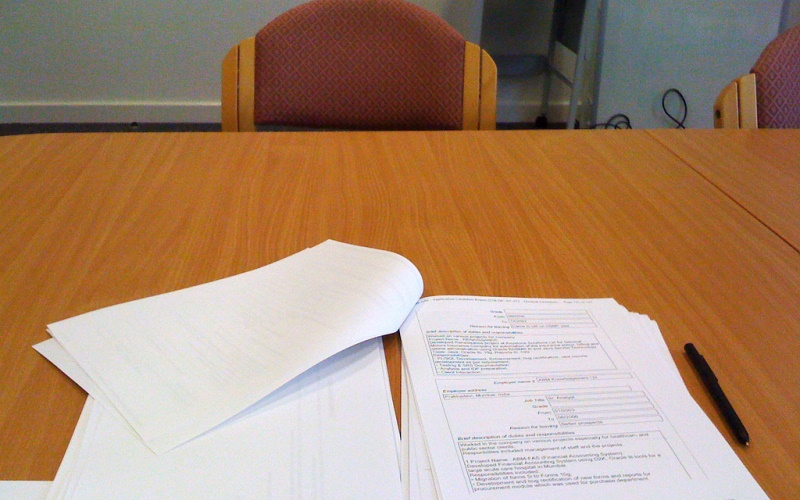Whether you’re fresh out of school or thinking of leaving your current job, knowing how to prepare for an interview is a must.
Going for an interview can be extremely daunting so sweaty palms and butterflies in your stomach are expected.
But don’t worry, here at The School of Journalism, we know exactly how to push through the nerves to put your best journalistic foot forward.
Follow our top 10 tips on how to prepare for an interview – you can thank us later.
Look after yourself
Get a good night’s sleep and have a decent meal before your interview – make sure you are the best version of you there is.
You don’t want to be dozing off or your stomach grumbling during the interview.
Review your CV and application form
Make sure you can defend everything you’ve written – for example, why you left a previous job, the grades you achieved at your A-Levels.
Be able to speak about more than what you’ve put on your CV.
Refresh yourself on how you got involved with previous projects or stories and why you liked them.
You do not want to be in a situation where you can’t justify or explain a statement on your CV.
Read the job description very carefully
This will help you to recognise exactly what the employer is looking for so you can tailor your answers accordingly.
Have a bank of examples of things you have done already that tick the boxes in the job description to prove you are the best candidate for the role.
Don’t worry if you don’t match every single desirable skill listed. Just make sure you can prove your other skills and your willingness to learn on the job.
If you are sitting in a journalism job interview, then be sure to bring your portfolio having carefully selected the most relevant pieces of work to this job’s requirements.
Be on time
It’s actually best to arrive early enough to find the exact location of your interview and to give yourself enough time to calm down.
Depending on where you are waiting, it is also a good opportunity for you to get a feel for the place and the type of environment it has to offer.
Arriving flustered because you’ve run from the bus stop is not a good look.
Also, some places monitor waiting room behaviour.
Make a good first impression
Manners go a long way so don’t forget those P’s and Q’s!
Make sure you knock before you enter and close the door before you sit down.
Don’t expect them to know who you are, they are probably interviewing a lot of people – so, introduce yourself and shake everyone’s hand.
And dress smart – there’s no such thing as being too formal for an interview.
Good body language
You should always come across as positive, enthusiastic and engaged throughout your interview.
Also, don’t slouch, yawn or fold your arms – stay calm and alert, sit up straight and make eye contact with everyone.
It is ok to bring a bottle of water but do not eat or chew gum.
Know your stuff
Whatever you are applying for, make sure you’ve done your research. Interviewers expect candidates to have a good grasp of what their organisation does and how they work.
Look up who is interviewing you and make sure you know their names, job titles and what they do.
Read through our tips on using LinkedIn as a journalist so you know where to start.
And make sure you know the format of your interview – for example, will it be one-on-one or in a group? If you don’t know, it’s ok to ask.
Take notes
Don’t be afraid to take some notes with you – make sure you don’t just read from your notepad but it’s ok to have some pointers you’d like to remember.
You can also take a few notes on what the interviewer says – this will make you look interested.
Ask questions
You’ll often get asked if you have any questions at the end of your interview.
Don’t risk looking disinterested and say you have no other questions so be sure to prepare some before you go.
If you’re looking to prove yourself as a journalist, you should be asking specific, well-researched questions.
End on a positive note
The final thing you say will leave a lasting impression so try to finish on something positive.
For example: “It was lovely meeting you, I look forward to hearing from you.”
If this was helpful, read through our tips to writing a great cover letter and how to perfect your CV.

